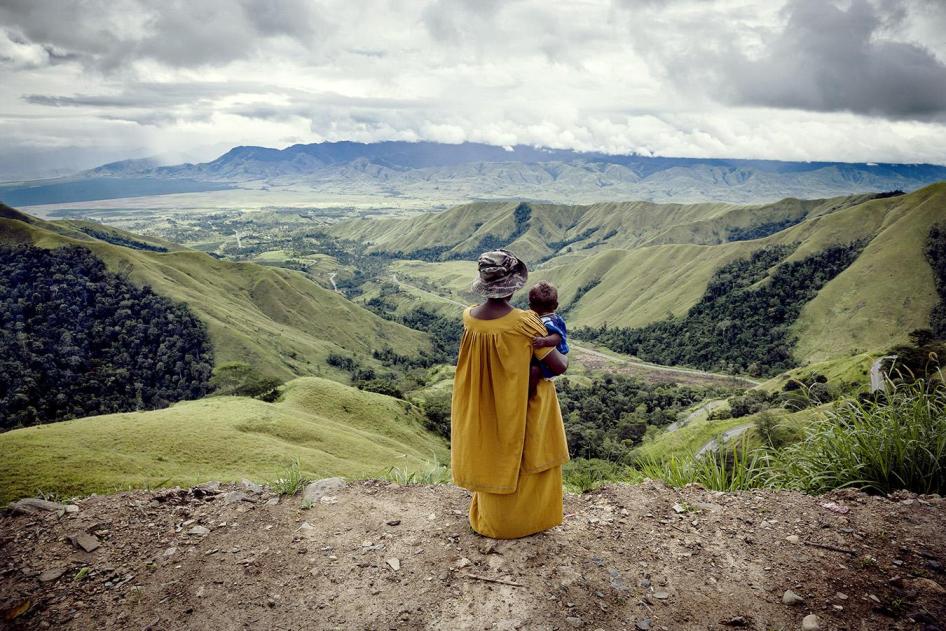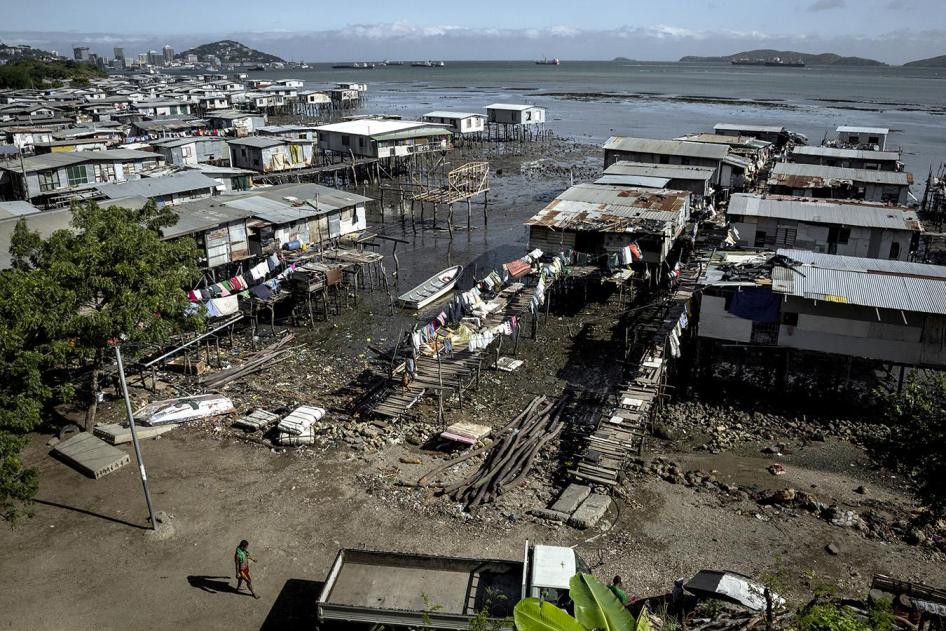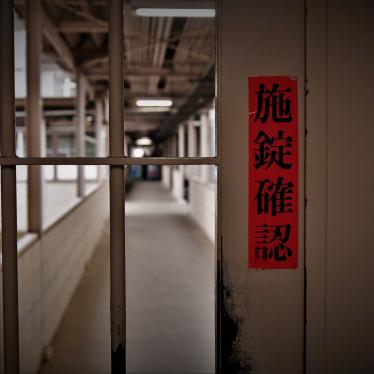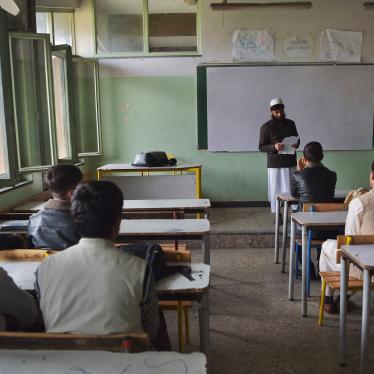(Sydney) – Women and girls in Papua New Guinea are enduring brutal attacks from their partners, as government officials neglect survivors’ needs for safety, services, and justice, Human Rights Watch said in a new report released today. Critical interventions for survivors, including protection measures and access to shelters, are not readily accessible or not available at all as a result of enforcement failures.
In September 2013, the Papua New Guinea parliament passed the Family Protection Act, a law setting new penalties for family violence, and creating new mechanisms, including specialized police units, to protect and assist victims of family violence. More than two years later, however, the law has yet to be enforced. The government says that it will not do so until it has finalized enabling regulations, even though this is not required by law.
“We heard the most harrowing stories from woman after woman,” Heather Barr, senior researcher on women’s rights at Human Rights Watch, said. “Women showed us their scars – from being hacked with knives, having bones reconstructed, having teeth punched out – and then described how they had to go back to the husbands who attacked them, because they had no other option.”
The 59-page report, “Bashed Up: Family Violence in Papua New Guinea,” documents systemic failures in how the government responds to domestic violence – failures which often leave women unprotected and subject to ongoing violence, even when they have gone to great lengths to seek help and justice.
Human Rights Watch research shows that police and prosecutors rarely pursue criminal charges against perpetrators, even in the most serious cases. Police often demand money from victims before they will act or simply ignore cases occurring in rural areas. Police appear reluctant to refer survivors for protection orders, and survivors who seek protection orders frequently encounter delays in the courts. These failures occur even in specialized family violence police units.
When police do get involved, they often seek to resolve the situation not by bringing charges, but instead by “counselling” the attacker to stop violent abuse, and send the woman home – even in cases of attempted murder and repeated rape, and even when the victim does not feel safe returning, does not want to reconcile, and asks for the attacker to be imprisoned. For example, Jenella, age 39, told Human Rights Watch she went to the police 17 times asking them to arrest her husband but the police refused.
“Victims of serious domestic violence in Papua New Guinea seek help from police, yet are too often ignored, or told by police to go back to their husbands,” said Heather Barr. “Without help from the police, women find themselves completely at the mercy of their attackers.”
There is a dire lack of services for survivors. There are few shelters, qualified counsellors are all but non-existent, and legal aid is largely absent. There is no safety net for survivors, including those with dependent children, who need help to leave abusers and become financially independent. Many women told Human Rights Watch that they had stayed with an abusive husband because they had no other way to feed their children.
Harmful practices including polygamy, the payment of bride price, and attacks on people – often women – accused of sorcery continue unchecked in Papua New Guinea. A man’s marriage to a second wife often precipitates abuse of the first. Bride price sends a message that women are property, and cuts women off from their family’s help, as custom dictates that bride price must be repaid if the wife leaves her husband – even in the event of abuse – and many families cannot afford to return the funds. Sorcery accusations all too often become a form of family violence, with abusive husbands threatening or using sorcery accusations to silence and control women. All three practices reinforce discriminatory gender norms.
A network of activists across the country, many of them survivors of family violence themselves, have worked tirelessly both to assist individual victims and press the government for reform. The passage of the 2013 Family Protection Act is largely due to their efforts.
Donors, especially Australia, have played a crucial role in funding many of the limited range of services that do exist for victims of domestic violence. Leadership and implementation by the government, however, has been lacking.
Papua New Guinea has a booming economy, thanks to the country’s natural resources. The government should direct both funds and political will toward ending impunity for family violence. The government should urgently implement the Family Protection Act, and ensure that police, prosecutors and courts treat family violence as a crime. It should also dramatically expand services for survivors of family violence, by providing more shelters; ensuring access to legal aid, counseling and case management; and creating a financial safety net for women – and their children – when they seek to begin a new life free of violence.
“There have been some positive steps by the government on tackling family violence in recent years,” Barr said. “But real reform has not come yet. There is much more that the government needs urgently to do to protect the rights of women and to uphold its obligations under international law.”
Selected Testimonies
“I went to the police 17 times. I went every week for the last month. They said this is a domestic problem. They just told my husband not to do it again. I brought my husband to the police station and the police said, ‘You have so many kids – you should go back and not do this again.’ I wanted them to put him in jail for one or two years. So far I have two bones broken,” she said. “It’s very hard for me to find food for the kids and send them to school.”
–Jenella, age 39, mother of seven children, has gone back to her husband
“He came to me and asked for sex. I said no, because I was very tired. He accused me of having sex with others. About 2 or 3 a.m., he got a hot stick from the fire and he put it in my vagina. [The police] said they don’t have the car to arrest him. I went there two times. I spent two days waiting for the police. I am not happy with the police.”
–Katherine, age 48, mother of two children
“They arrested him and sent us both to counseling with the sergeant of the [specialized police unit]. We met twice. Nothing happened. My husband continued bashing me. In the presence of the police he agreed to stop, but in the home there was no change. He was hitting me between counseling sessions. I told the police he was still hitting me. They warned him that they would take him to court if he didn’t stop. I asked the police to help me get a protection order. They said they were too busy.”
–Kere, age 18, married for two years, mother of one child
“I decided to go back to him because of the children. He raped me again. He locked me in a room on Thursday and Friday. Then I managed to get away. I want to take him to court and get him kept away. I’m going to find a job and get my own home so I can get my children back. I want to stay away from my husband.”
–Grace, age 44, mother of seven children, staying in a safe house at the time of the interview
“I went to the police three times in 2012 and once in 2013. The first three times, the police just called my husband [he is a police officer himself]. They took a complaint the fourth time, but never arrested him. After that I thought, I can’t get help. I was just helpless. I even went to his supervisor and asked them to take his weapon. At times I just feel, gosh, that’s the end of the world for me.”
–Alice, age 38, mother of four children
“We’ve complained and asked the magistrates to be tougher. The prosecutors don’t deal with cases very effectively. Penalties are not strong enough.”
–Police officer with a specialized family and sexual violence unit
“The law about violence against women is not strong enough, so men take advantage…. The government is too far away from me.”
–Survivor of family violence in the Highlands
“We have never used the FPA [Family Protection Act]. We can’t use the FPA without information on how to charge someone under it. No one sent any info to us on it.”
–Police officer with a specialized family and sexual violence unit








